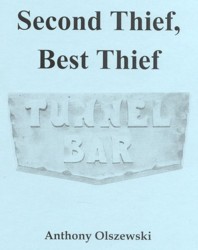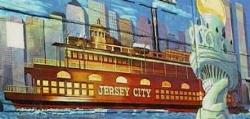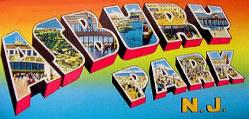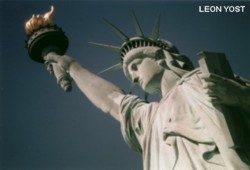 |  |  |
|
| ||
 |  |  |
 |  |  |
|
| ||
 |  |  |
|
|
|
After eliminating a corrupt regime in New Jersey's major metropolis, Lacey and Stern turned to the state's second city - Jersey City.
Frank Hague was elected mayor of Jersey City in 1917, and for more than 30 years the city and surrounding Hudson County were his personal fiefdom. He built the Hudson County Democratic organization into a political powerhouse so strong not even Franklin D. Roosevelt dared challenge him. "I am the law," Hague once proclaimed-and it was no idle boast. His tyranny was enforced by police nightsticksand on occasion Hague's own fists. Hague was something of a puritan. When he was at the table, no liquor could be served-which made political dinners a trifle tedious for many. He would not permit prostitution in Jersey City, and CIO organizers were run out of town. But gambling flourished-so much so that one downtown street was known as "Hague's Bourse." Of course, the gamblers paid for protection, while public servants were assessed three percent of their salaries as "dues" to the organization and contractors had to kick back their tithe. Only a fraction of the money actually found its way to party coffers. Hague, whose salary never exceeded $7500 a year, was worth an estimated eight million dollars when he died in 1956. In that year, political scientist V. O. Key observed, "The plunder of Jersey City by the Hague machine . . . has made it the highest-taxed city in the United States." Hague's downfall started in the spring of 1949 when one of his ward leaders, John V. Kenny, challenged his choice for the mayoralty. The two men were a study in contrasts: Hague, tall, gaunt, aloof; Kenny, a bantam of a man, gregarious, with an Irish twinkle in his eye. Although his ticket was called the Freedom Party and his chief issue was Hague's wealth and whip hand, Kenny was no reformer. He won his 22,000-vote margin by beating Hague at his own game. Where Hague paid five dollars a vote, Kenny paid fifteen. Although Kenny had ousted him from his power base, Hague held on to the posts of Hudson County Democratic chairman and New Jersey's Democratic national committeeman. In the 1949 general election, he tried to install an underling as New Jersey's governor, but Kenny threw his votes to the GOP, and Hague finally threw in the towel. He resigned his party positions, and Kenny assumed full command in Hudson County. The 25-year reign of "the Little Guy," as Kenny was called, was more benign than Hague's but equally as venal. The rules of the game had not been changed; a new platoon merely took the field. Although Kenny soon left both his public and party posts, he remained the "boss," calling the signals in both the city and county, operating out of a penthouse suite in Pollak Hospital, where he had installed his son-in-law as administrator.

|
|
| 08/18/2012 11:10 PM |
|
Computer Repair Blog XP Local Area Connection stuck at Acquiring Network Address |
 Your Ancestors' Story |
 Bruce Springsteen's Jersey Shore Rock Haven! |

|
UrbanTimes.com |